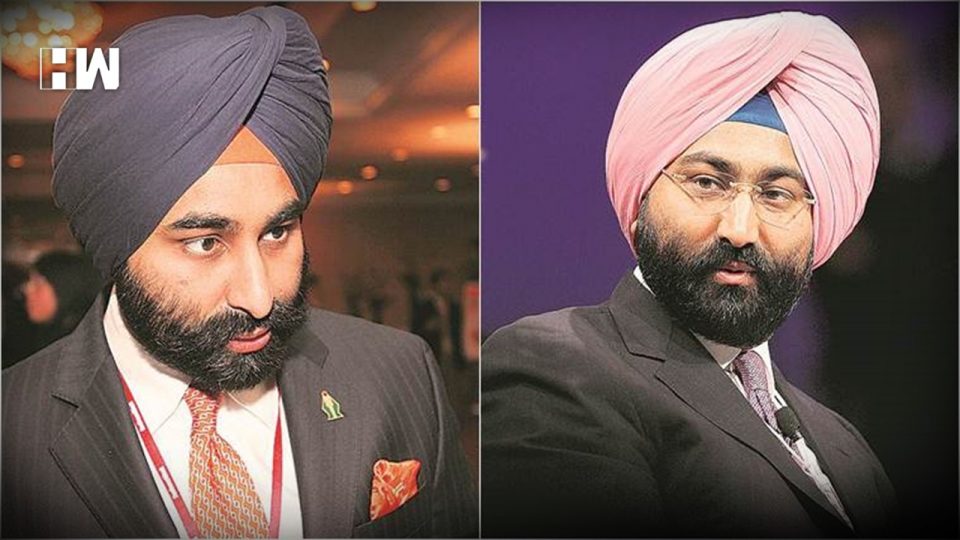The previous chapter was focused on the Ranbaxy deal and its aftermath, the rapid rise and fall of Fortis Healthcare and Religare and the introduction of the brothers’ spiritual leader Gurinder Singh Dhillion. Part 2 details how corporate governance was thoroughly ignored and consequences of the brother’s actions.
Over the years, the brothers’ main holding company, RHC Holdings, loaned approximately Rs 2700 crores to the Dhillion family and property businesses controlled by him. Needless to say, this money which was loaned at a zero interest rate was never returned to the lender RHC holdings and has been used to fund a failed real-estate venture on the outskirts of Delhi. Further monies over the years from the Singh brothers controlled firms were diverted without board or regulatory approval via opaque corporate structures and shell companies to fill the coffers of the Radha Soami Satsang leader who used it for various religious and personal purposes. These loans proved costly to the Singhs, coming on top of other major financial commitments that were underway. Mr Dhillion and his organisation clearly had a massive impact on the brothers. In 2015, younger brother, Shivinder, briefly took a hiatus from the business to work at the spiritual group full time.
Various stakeholders and regulatory authorities have levelled accusations of financial wrongdoing on the Singh brothers time and again. If one observes carefully, a pattern has emerged in the way they have conducted business over the years, a sort of method to the madness. Corporate Governance was thoroughly neglected resulting into illegal related party arrangements, unethical practices such as siphoning off funds without board approval, murky business transactions hidden by layers of shell companies, bleeding the company dry in order to enrich themselves and their guru and uncle Mr. Dhillion, money being continuously routed back and forth under mysterious circumstances from their holding company to other entities then disappearing without a trace. It is through instances like these that give us a glimpse into how poorly their company has been managed over the years and has gone from being cash rich to the tune of Rs 9500 crores after the sale of Ranbaxy in 2008 to a point where their total debt hit roughly 20,000 crores in 2018 according to an India today report.
Times are tough for the brothers currently and they seem to be paying for the sins of their recent past. With banks finally seizing assets backing their loans, the Singh brothers are evaluating all options for repayment and have sold the house they grew up in, in addition to personal effects such as expensive paintings. The majority stake in Fortis and Religare held by the brothers that were given as collateral have also been seized by lenders reducing their shareholding to a negligible amount. Bank accounts of the brothers have recently been frozen and they have been directed by the court to disclose all foreign assets and have been instructed not to transfer any properties owned by them. Shares held by them as investments in listed companies are also being sold in a bid to pare their debt. Amongst all the business setbacks suffered by the Singhs, the latest chapter of this saga unfolded with younger brother Shivinder Singh filing a case just last week against elder brother Malvinder and former colleague and MD of Religare Enterprises, Sunil Godhwani, for oppression and mismanagement of RHC Holdings and Fortis, saying that he was misled by the duo in his absence when he took leave to serve his spiritual guru in the Radha Soami Satsang Beas. He further went on to state that he is cutting all business ties with his brother and will no longer continue to be associated with him.
The story of the Singhs can be metaphorically described like the ancient Indian board game, regarded today as a worldwide classic, snakes and ladders. The historic version of this board game had its roots in morality lessons, where a player’s progression up the board represented a life journey complicated by virtues (ladders) and vices (snakes). With a rapid rise in the scale of their businesses in the early 2000’s the Singhs must have definitely scaled a few ladders on their way up, but with them cutting corners and serious doubts being cast on the unethical conduct of their businesses, they found themselves being bitten once too often for their liking, finally culminating into a deathblow. Even with the blessings from their spiritual guru, it seems karma played a bigger role in determining the fate of the beleaguered Singh brothers.
As an independent media platform, we do not take advertisements from governments and corporate houses. It is you, our readers, who have supported us on our journey to do honest and unbiased journalism. Please contribute, so that we can continue to do the same in future.

